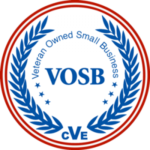Installing solar panels in Texas has a lot of financial benefits. With a home solar installation, you can reduce or eliminate your electricity bills, qualify for solar tax benefits, and increase the value of your home.
Solar panels do, however, come with an upfront cost—before you can start saving money with solar panels, you need to pay for the installation. This leaves many homeowners wondering whether they should take on a DIY solar installation.
It’s possible to install your own solar panels in Texas, but there are drawbacks to a DIY solar panel installation that you should consider before starting this project.
Pros and Cons of Installing Solar Panels DIY
Installing a solar system DIY has its advantages and disadvantages.
Pros of DIY Solar Installation
The main benefit of a DIY solar installation is cost savings. By completing the installation yourself, you won’t have to pay for labor. Labor costs, however, only account for a relatively small percentage of your total solar costs. If you install a home solar energy system yourself, you will still have to pay for the materials and permitting fees. And, if you want to connect to the grid, you’ll have to hire a certified electrician to inspect and approve your system.
Cons of a DIY Solar Installation
The drawbacks of installing solar panels yourself tend to outweigh the benefits.
- Can be dangerous
- Time-consuming
- Can’t always connect DIY solar panels to the electric grid
- Need to get your own solar permit
- No warranty to protect your investment
It’s not easy to install a full home solar panel and battery system without proper training and experience. In Texas, businesses that install solar panels must hold a Texas Electrical Contractor's License (TECL) from the Texas Department of Licensing and Regulation (TDLR). If you don’t have experience as an electrical contractor, installing solar panels yourself could be extremely dangerous for you and your home.
Another problem with DIY solar panels is that they can’t always be connected to the electric grid. Grid interconnection is a regulated process that must be approved by your utility and overseen by a certified electrician. Without a grid connection, you will be fully dependent on the power produced by your solar panels. If there’s ever a problem with your system, you won’t have the grid to fall back on and will be without electricity.
Ultimately, DIY solar installation is a good option if you want to add a few solar panels to an RV, boat, or small shed, but is not ideal for houses.
Hiring a Professional Solar Installer Pays In the Long Run
When you hire a licensed solar company, you’ll get an easy, hassle-free experience. Your installer will handle all the paperwork, like permitting and grid interconnection agreements for you, so you don’t have to jump through hoops. You’ll also have peace of mind knowing that your system is sized correctly, installed safely, and protected by a solar warranty. And, your installer will help you take full advantage of Texas solar panel incentives like the solar Investment Tax Credit that you may miss out on if you install your own solar system.
Texas Engineered Solar is a local solar installer in San Antonio, Texas. We install high-quality solar panel and battery systems at reasonable prices, and we offer great financing options. We are a Texas solar company that’s locally owned and operated by United States veterans, and we can help you get the best deal on solar for your home.
Don’t risk a DIY solar installation—call the pros at TXEN Solar. Call 210-516-1604 or contact us online to get a free quote.
Want the full benefits of solar? Trust TXEN Solar with your installation.



